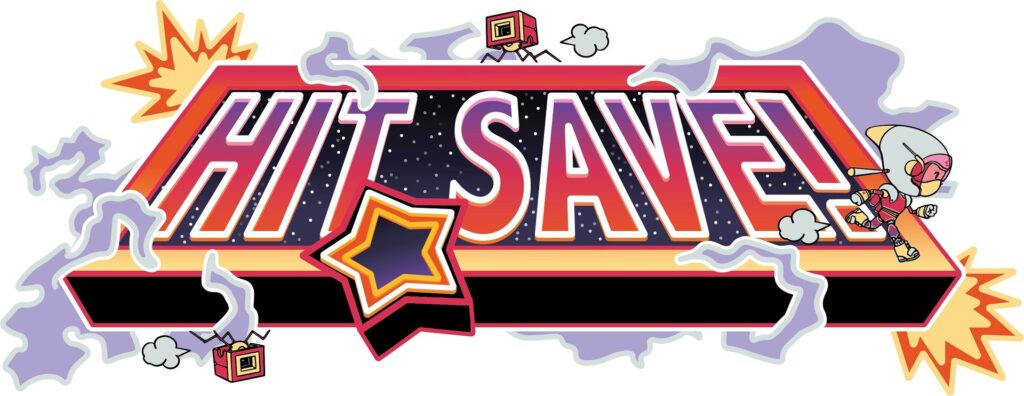
In the world of art, preservation is an invaluable part of the enjoyment process. Today, we enjoy paintings created centuries ago thanks to efforts from the world’s foremost preservationists, and the National Film Preservation Foundation ensures that the methods of early filmmaking are never lost. There are similar initiatives across other forms of media, too, including the Music Library Association, and the Cartoon Art Museum.
This week saw the official debut of a new organization dedicated to the preservation of the video game art form. Hit Save is a nonprofit that “advocates for, initiate, support, and maintain video game preservation efforts through community-driven projects.” The effort is being led by Jonas Rosland, who serves as the group’s executive director.
“Video games are a form of popular culture that combines storytelling, music, illustration and graphic arts, and technology,” Rosland told GameDaily. “As an organization, we are dedicated to the preservation and education of this form of pop culture.”
Rosland admitted that there already exist a handful of museums and similar initiatives aimed at ensuring future generations can appreciate the art form, but Hit Save’s methods are more proactive. In addition to collecting and scanning physical printed media, the organization also offers sponsorships to game makers via hardware and software that will allow them to record their efforts for posterity.
“We have a global approach, so wherever you live, if you need help, funds, tools, contacts, or something else to further valuable preservation efforts, we’d like to see how we can assist,” Rosland explained. “Are you an historian and need a better mic to record your interviews in better quality? Are you a researcher who would like to travel to a library that has books, magazines, or documents that aren’t available anywhere else? Are you a collector who would like to assist in various preservation efforts for obscure or rare games that you own? We would love to help.”
This collaborative, community-driven approach to video game preservation forms the heart of Hit Save’s philosophy, and was a founding principle for Rosland and his team.

“Hit Save started out as discussions between members of preservation groups and people within the game industry,” he said of the organization’s origins. “We wanted to have a way to collaborate across group boundaries and country borders; we saw it as crucial that we could support global preservation efforts, not just US-based ones.”
A major part of Hit Save’s work revolves around the indie scene. Through the Indie Preservation Project, the organization will interview independent developers to get a feel for their unique and varied development methods, as well as their motivations, inspirations, and origin stories.
“The Indie Preservation Project is an important facet to the work that Hit Save is committed to doing,” Amanda Farough, director of communications at Hit Save, told GameDaily. “Indie games, especially home-brew projects, tend to fall by the wayside when we discuss the history of video games. No one knows about these developers, in some cases. So, as a forward-looking approach, the Indie Preservation Project will document the projects of today in order to preserve these development stories for years to come.”
Farough, who has served as GameDaily’s editor-in-chief in the past, said that the industry’s move toward digital delivery is one of the primary motivations behind Hit Save’s efforts, especially as it pertains to the indie space. Without physical media, many of today’s indie games get lost, and Hit Save wants to ensure that the stories of these developers remain accessible.
“Not every indie is going to ascend to the successes of Celeste or Dead Cells, but many of these stories, especially the development and design methodologies, still deserve to be told and preserved,” Farough said.
To that end, Hit Save’s preservation methods encompass both physical and digital media. By scanning and archiving physical media, such as books and magazines, Rosland hopes that future researchers can more easily access the information they’re looking for.
“Being able to search for specific words or names in thousands of documents saves a lot of time and effort, and considering the success of the Internet Archive, that is definitely a proven and effective method for archiving information,” he said. “Preserving games and their history has many components. The goal is to capture as much information as possible, and, depending on someone’s expertise, the work being done can be very different.”
Preserving the entire history of video games is undoubtedly a daunting prospect, but Hit Save’s collaborative approach seeks to utilize the power of shared enthusiasm. Just like film and music before it, video games are created by passionate artists, people with diverse backgrounds and motivations who themselves stand to benefit from the medium’s conservancy. Like the games they create, their stories are unique and deserve to be told. In this way, Hit Save’s work is undeniably important.
Sam, the Editor-in-Chief of GameDaily.biz, is a former freelance game reporter. He's been seen at IGN, PCGamesN, PCGamer, Unwinnable, and many more. When not writing about games, he is most likely taking care of his two dogs or pretending to know a lot about artisan coffee. Get in touch with Sam by emailing him at sdesatoff@rektglobal.com or follow him on Twitter.
 GameDaily.biz © 2025 | All Rights Reserved.
GameDaily.biz © 2025 | All Rights Reserved.